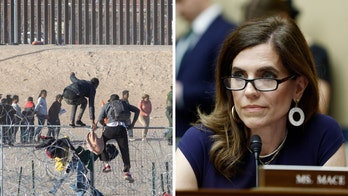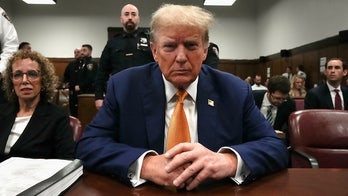As President Obama continued to tout his new jobs bill campaign-style in the battleground state of Ohio, Senate Majority Leader Harry Reid, D-Nev., focusing instead on a potential disaster relief fight with Republicans, was unable to outline a path forward for the $447 billion plan.
"I don't know exactly what I'm going to do yet with the president's jobs bill, but we're going to have a full caucus meeting on it on Thurs," Reid told reporters, saying merely that he had introduced the bill Tuesday. A number of Democrats have previously opposed some of the ideas in the bill.
When asked if he had the votes to pass the legislation as is, the leader said only, "We'll see probably at later time."
Reid plans a briefing for his Democrats Thursday from White House officials "for people who don't understand it," and leadership aides tell Fox that committee chairs have been encouraged to hold hearings, though none have yet been announced.
Meanwhile, Republicans hit the president for filling the bill with ideas that have "been around the track," as Senate Minority Leader Mitch McConnell put it Tuesday.
"I think this proposal is really not credible," the Kentucky Republican declared, as he skewered the Administration's proposal to pay for the bill with tax increases. The president has said it is time for the wealthy to pay their fair share.
Despite the conflict, it was clear there are a number of areas where Republicans and Democrats could find common ground, and according to a number of GOP and Democratic aides, the president's proposal could eventually be carved up, with parts of it passing in a piecemeal approach.
But there have been conflicting signals on that front coming from the White House. While the president said Monday, "Obviously, if they pass parts of it, I am not going to veto those parts," Obama's top campaign strategist, David Axelrod told ABC, "We're not in a negotiation to break up the package," adding, "It's not an ala carte menu."
As for Congress, though members could pick some items from that menu on which they agree, like a payroll tax credit, it is unclear if there is the political will to do so.




